DENTIST FOR INFANTS HINSDALE AND DOWNERS GROVE
Establishing Healthy Smiles from the Start

Nothing will melt your heart faster than seeing your baby smile. But while it's common to have questions about caring for an infant's teeth and gums, all you need to keep their smile healthy are a few good habits at home and regular care from our outstanding team. With a warm, friendly atmosphere and many years of experience, our team of pediatric dentists will give your baby a strong start on the path to optimum oral health. If you have a little smile at home, contact us anytime to schedule an appointment with our dentists for infants in Downers Grove and Hinsdale. We’d love to meet them!
Why Choose Brush Pediatric Dentistry for Infant Dental Care?
- Team of 5 Board-Certified Pediatric Dentists
- Convenient Locations in Hinsdale & Downers Grove
- We Accept & Maximize Dental Insurance
Your Baby's First Dental Visit
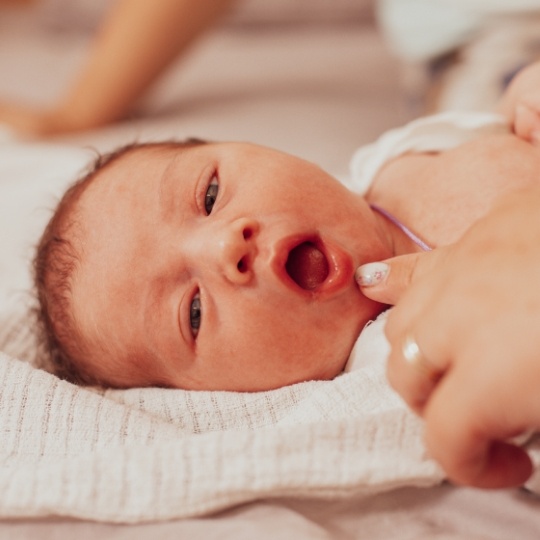
Our team of pediatric dentists, along with American Academy of Pediatrics and American Academy of Pediatric Dentistry, recommend bringing babies in for their first dental visits as soon as their first teeth erupt, which is normally around six months old. If they don’t have any teeth by the time they turn one, you should still bring them in anyway. During this visit, we’ll introduce your child to everyone in the office so they can get used to their new surroundings. Our staff will then gently clean their mouth and gums and give them a short oral exam while they lay down in your lap. After that, they’ll discuss how you can take care of your child’s teeth as well as what developmental milestones you should look for.
Fluoride Treatments for Infants
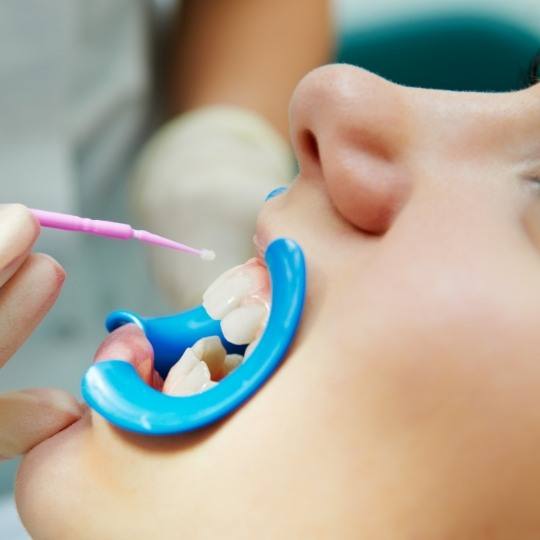
A topical fluoride treatment is fast, easy, and incredibly effective for protecting your baby's teeth from cavities. This naturally occurring mineral strengthens their enamel and makes their teeth significantly more resistant to decay. To apply it, we use a small brush to paint a thin layer of fluoride varnish on their teeth. With a thin consistency, it dries quickly and adheres to their teeth for several hours. Then you'll simply remove any residual varnish at home with an infant toothbrush or damp cloth later that evening.
Teething
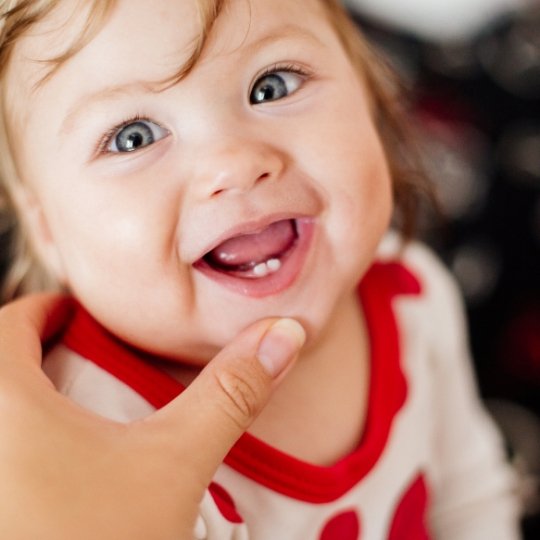
Teething can be a difficult stage for both babies and their parents and often leads to fussiness, drooling, trouble sleeping, and a tendency to chew on everything. To make things easier and more comfortable for your baby, use the following tips:
- Periodically massage or gently rub their gums with a clean finger or cold, damp washcloth.
- Refrigerating teething toys is helpful and rubbing a cold spoon on the gums can also provide relief.
- Ask us or a pediatrician before using acetaminophen (i.e. baby Tylenol).
- Do not use any type of topical pain reliever as there is risk of toxicity.
Non-Nutritive Oral Habits
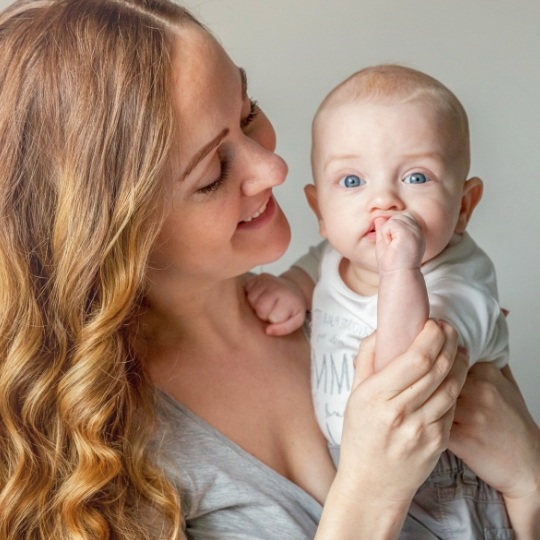
Non-nutritive oral habits refer to thumb-sucking and pacifier use that soothes and comforts an infant. While these habits are a normal part of development, they can cause problems if they persist after the teeth start coming in. At Brush Pediatric Dentistry, our team will give you tips and tricks for helping your baby break these habits as easily as possible when the time is right.
Tooth and Gum Care After Feedings
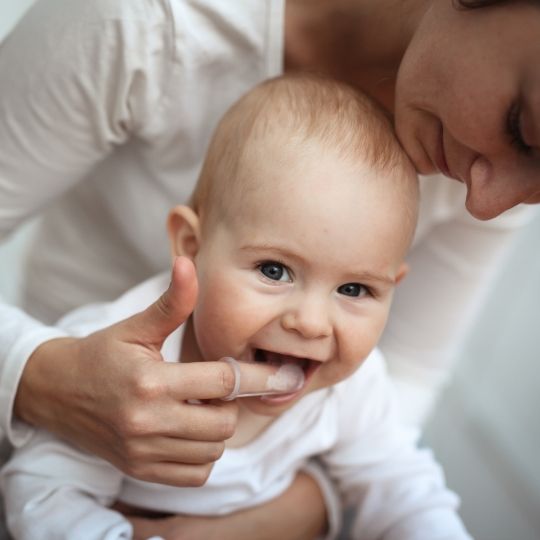
Starting infant oral care early on is important for multiple reasons. First, you need to remove residual sugars from your baby's mouth from breastmilk and formula which would otherwise encourage bacteria to accumulate on their teeth and gums. In addition, it helps them get accustomed to the feeling of having someone else clean their mouth each day, which will make brushing and flossing much easier as they get older.
To start, gently clean their gums with an ultra-soft teething brush or a clean, damp cloth 2-3 times each day or after feedings. When the first tooth comes in, use a very light smear or rice-sized amount of fluoride-containing toothpaste (since infants aren't able to spit, you want to minimize the amount they swallow). And, as always, don't hesitate to contact us with any questions or ask for specific guidance during a checkup. Good oral hygiene at home is incredibly important, and we're happy to help!
